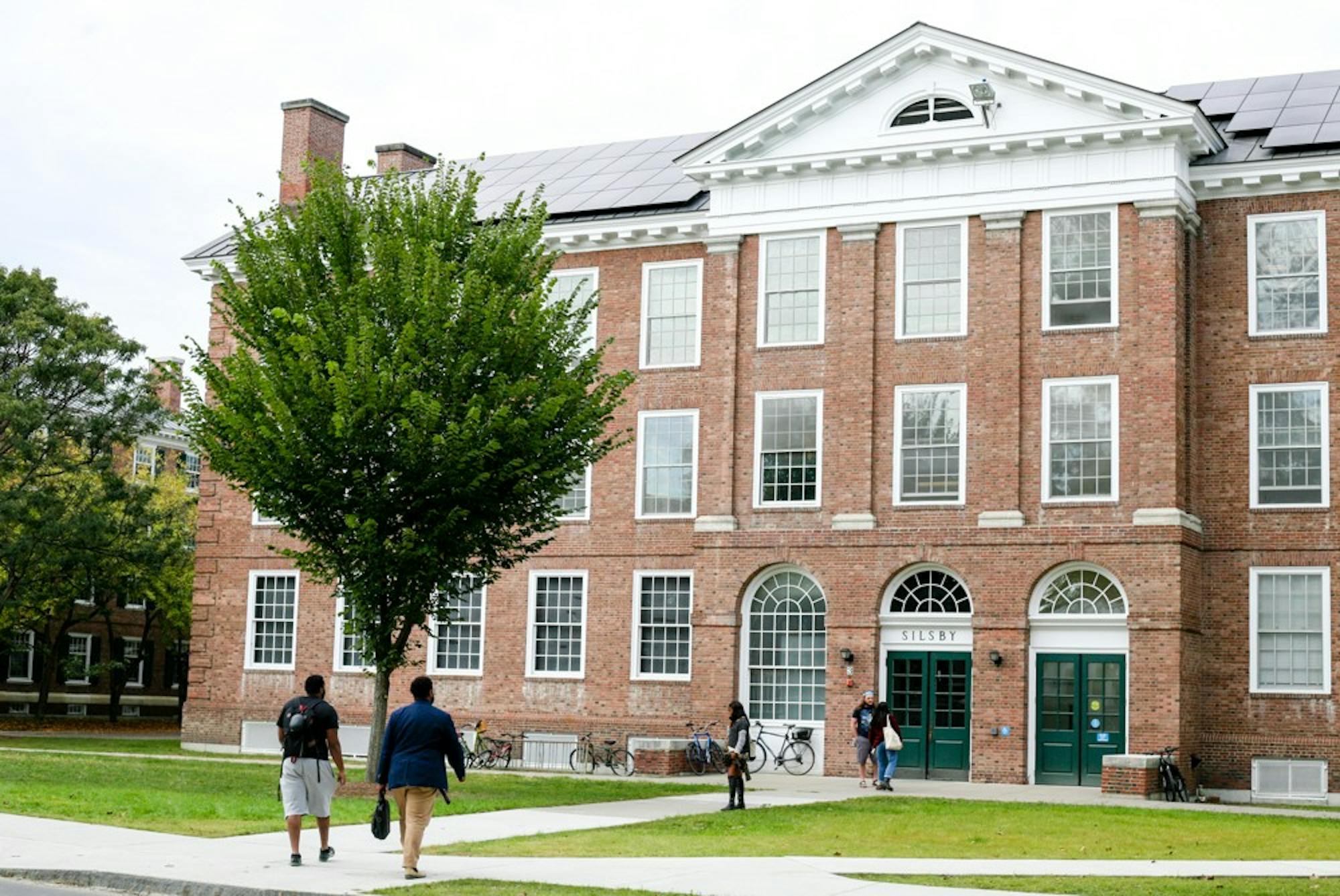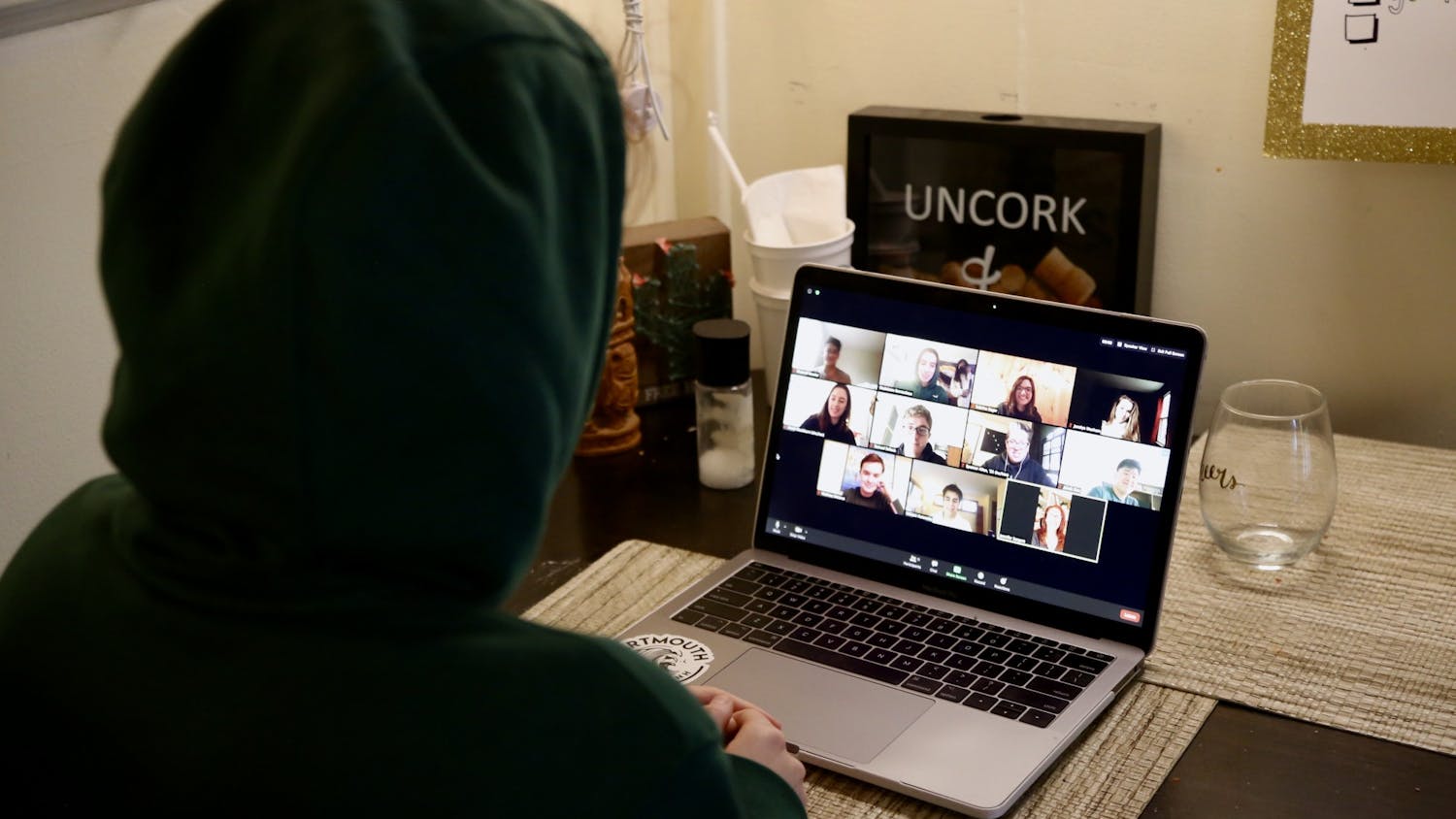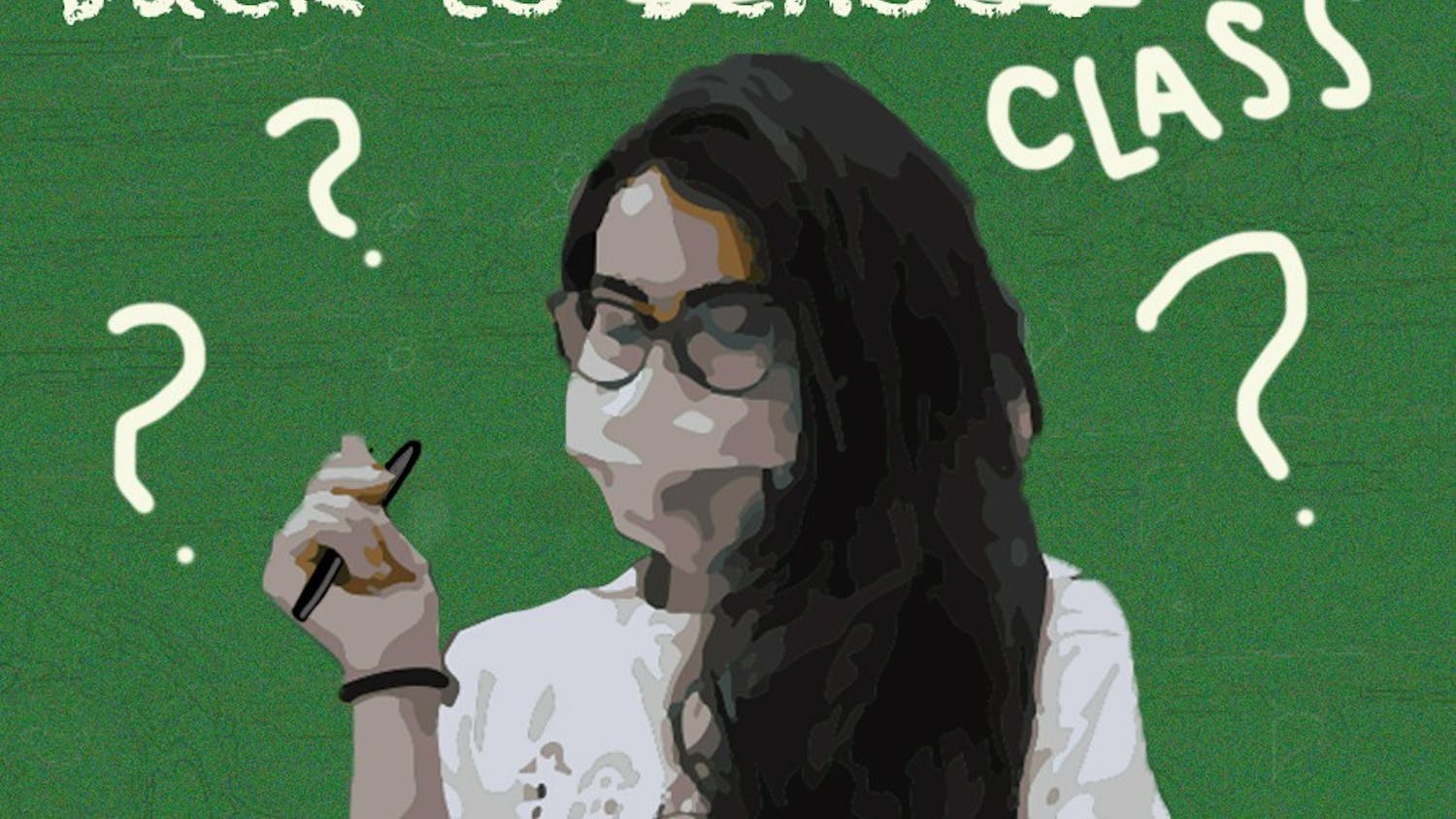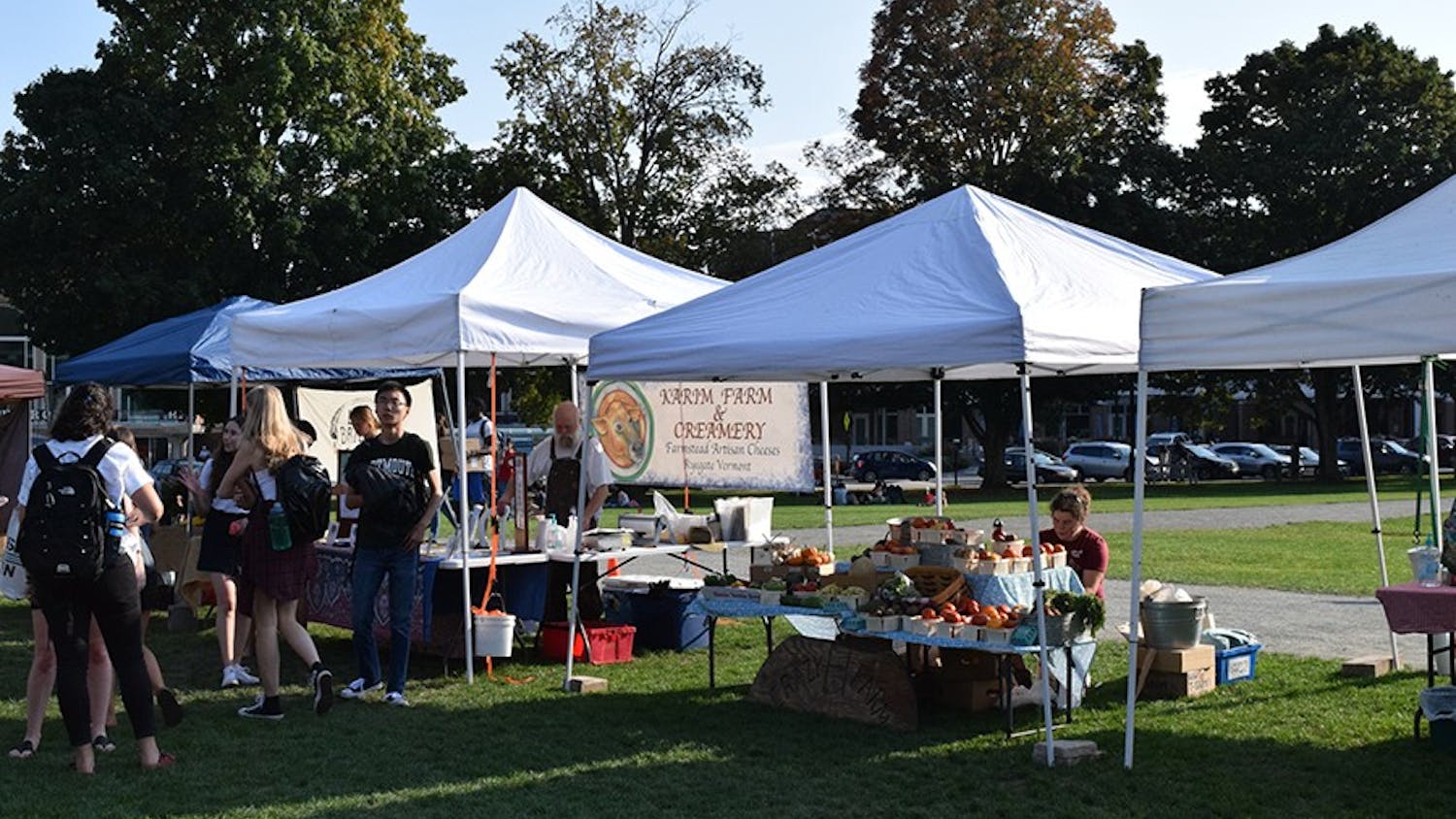Professors teaching classes this fall are grappling with social distancing requirements, logistical challenges and concerns about equity as they design their courses, compelling the vast majority to keep their classes fully online even as thousands of students return to the Upper Valley.
According to guidance sent to faculty by the Registrar on June 30, a copy of which was obtained by The Dartmouth, four course delivery modes are available for the fall for classes with multiple students: remote with synchronous components, remote and entirely asynchronous, remote with optional on-campus components and on-campus subject to limitations. Independent study classes with single students will also be available and can be remote or in-person.
Students on campus hoping to take a mix of classes, however, may find their options limited. Over 650 class sections are being offered this fall, excluding individualized study courses, according to the College’s academic timetable. Of those, 568 are being offered remotely with synchronous components, 45 are remote with optional on-campus components, 30 are remote and entirely asynchronous, and 10 are on campus. An additional 149 are individualized study courses.
The Registrar’s guidance to professors laid out certain limitations for in-person instruction. All courses are required to be remote for at least the first two weeks of the term to accommodate the College’s 14-day quarantine requirements. Courses with on-campus sections must have “the same core educational elements” in person as remote, and “all required materials must be fully accessible to all students.” The course schedule has been modified to allow for additional time between classes for cleaning and the safe entry and exit of buildings.
Associate vice president of facilities, operations and management Frank Roberts wrote in an email statement Thursday that the logistics of cleaning each classroom are being “actively discussed.” He suggested that the department would procure and install additional disinfection equipment and hand sanitizer stations, and also said that ventilation systems are being reviewed.
Furthermore, there are just 36 spaces on campus that can hold more than 13 students at a time while complying with social distancing requirements, according to a chart included in the guidance sent to faculty, and only nine can hold more than 30 students. This includes spaces not normally used for teaching, like Collis Common Ground — normal capacity 100 with socially distanced capacity 20 — and Occom Commons — normal capacity 33 with socially distanced capacity 20. Spaulding Auditorium, which normally can hold 899 people, has had its capacity reduced to just 72. Calculations were done by FO&M, Roberts confirmed.
Registrar Meredith Braz declined to comment on the guidance sent to faculty, except to note that “most classes will be delivered remotely” and that faculty could receive assistance from their department chairs, the academic continuity team and on the “Teach Remotely” website.
Hybrid courses present challenges
Just as most students would prefer in-person instruction to online classes, professors, most said, would prefer to teach in person. However, the shortage of available spaces and logistical challenges of offering in-person components equitably combine to severely limit professors’ practical options.
“I think when people see the emails coming from the deans, and from DCAL or the Center for Teaching and Learning, we can read between the lines that this will be very difficult,” director of the Institute for Writing and Rhetoric and English and creative writing professor James Dobson said. “The suggestion is to do remote instruction.”
The Institute, which manages the first-year writing curriculum including Writing 2-3, Writing 5 and first year seminars, has decided to hold its classes online in the fall but with the “possibility” of ad-hoc, in-person meetings without an assigned classroom, Dobson said. This was done out of logistical concerns but also concerns of equity for all first-year students.
“Half of the first year class, we’ve split to give their Writing 5 assignment for the fall. The other half will have their Writing 5 assignments in the winter term,” Dobson said. “Winter term, ’24s will be home no matter what, so one of my concerns was to give the same experience to those students.”
The engineering department faced a particularly challenging decision, since the vast majority of engineering courses necessitate a hands-on component. Considering this, the Registrar’s guidelines stipulated that only engineering courses could require in-person elements.
In an email statement to The Dartmouth, dean of engineering Doug Van Citters wrote that two undergraduate engineering courses, ENGS 37, “Environmental Engineering” and ENGS 76, “Machine Design,” as well as the capstone design sequence, ENGS 89, “Engineering Design Methodology and Project Initiation” and ENGS 90, “Engineering Design Methodology and Project Completion” will be offered on-site in the fall. Of the courses offered, ENGS 76 will be the only one to require an in-person element because it has “a significant component embedded in [the Thayer School of Engineering’s] fabrication facilities.”
Van Citters explained that a two-section offering of ENGS 76 could not be made equitable per the Registrar’s guidelines. However, to avoid cancellation of the course, the engineering department opted to offer it during the fall and spring terms — priority terms for ’22s and ’21s, respectively — to accommodate the “mixed population” of students the course includes in a typical term.
“About a quarter of our faculty had originally asked for the opportunity to work with students residential in Hanover,” Van Citters wrote on the decision to conduct some classes on campus. “Very few thought it necessary to have in person lectures, but small design reviews, access to manufacturing equipment and more sophisticated laboratory equipment that simply cannot be found in the home environment motivated these thoughts.”
Only one course, ENGS 35, “Biotechnology and Biochemical Engineering,” was cancelled for the fall term due to safety concerns — a feat that Van Citters wrote was “a testament to the flexibility of the faculty.” All remaining courses are being offered entirely online, with students receiving any required lab equipment by mail.
Multiple professors spoke of an incentive structure that makes teaching hybrid or in-person classes more difficult.
“For some people, the challenges logistically of trying to deliver hybrid courses are quite significant,” anthropology professor Sienna Craig said, “especially to make sure that we’re doing our job of being equitable to all students in the class.”
Dobson pointed out “there’s a large amount of labor involved in preparing courses.” Though many professors are designing courses to better fit the online platform, he suggested that teaching in a hybrid fashion or multiple sections in different formats is less practical.
“We’re being told that it’s like designing our course twice and teaching it twice, to do both face-to-face and remote.” he said. Dobson added later that based on the writing program’s experience in the spring, many professors “wind up teaching the equivalent of two classes anyway” because of students in different time zones.
Craig said that many professors are dealing with pandemic-related challenges in their own lives.
“Most of us [in the anthropology department] are planning on teaching online for a range of reasons,” she said, citing “challenges over child care and dependent care” that would be exacerbated if Hanover district schools and daycares do not fully reopen.
“That makes a challenging set of circumstances even more challenging,” Craig said, “both at the level of epidemiology and at the level of just figuring out how you can focus and deliver your classes.”
The pandemic has also caused many professors concern for their and their students’ wellbeing. Jewish Studies professor Susannah Heschel stressed that “every professor [she] has spoken to really wants to be in the classroom.” The only reason professors would opt to teach online, according to Heschel, is due to “medical concerns” — not the Registrar disincentivizing hybrid models.
“Everyone I know is making a decision about teaching online based on concerns over the virus and its transmission,” Heschel said. “The one thing I think is very important about Dartmouth is that no one will be forced to teach in the classroom, and I wish every institution would have the same respect for its faculty.”
On-campus components will be sparse
Of the litany of economics courses offered this fall, just one — ECON 22, “Macroeconomics” — will have any in-person components. Economics professor Marjorie Rose, who will be teaching two in-person sections of the class capped at 15 students each, said she is “hopeful but cautiously so.”
“From a personal perspective, I really wanted to do in-person [teaching],” Rose said. “And the other thinking I had was, all of these freshmen that are coming here, and are going to be living in single dorm rooms, are going to have limited opportunities to interact in a classroom setting. So I thought, I’ll give it a go.”
She noted that another economics professor, Diego Comin, is teaching remote sections of ECON 22, which freed her to teach in person. Her husband, economics professor Douglas Irwin, wishes he could teach his ECON 39, “International Trade” course in person, but because he is the only professor, he is unable to, she said.
The experience of first-year students was also a top priority for the Spanish and Portuguese department, language program director Roberto Rey Agudo said.
“We know that some of the ’24s that we would typically have in our language sections in the fall are going to be on campus,” he said. “So, it’s an opportunity to meet them in person and start creating, developing that relationship with them … we wanted to have the opportunity to meet as many of those first-year students as we can and build that sense of community.”
Their classes will be mostly remote and synchronous, according to the timetable, but several Spanish classes — including the language sequence SPAN 1-3 — will have some optional on-campus components.
“It could be … meeting in a classroom — it doesn't have to for all class periods, it may be something like once a week,” Rey Agudo suggested. “It will be a meeting in person with students that would be possible to mirror with the students who are not on campus.” He gave the example of a tour of the Orozco murals, which can also be viewed online so that students off campus can contribute.
Rose cautioned that public health restrictions may still mandate a return to online instruction for her class.
“If at some point during the quarter one of the students in my sections tests positive, then the entire class, including myself, has to be quarantined and everything shifts online,” she said. “But my goal is, you know, hopefully everyone will be safe.”
The benefits of teaching in person outweigh the risks for her, she indicated.
“I love teaching freshmen,” she said. “I mean, I don’t know if you remember the way you felt when you came to Dartmouth your freshman year, but they’re excited to be there, they’re excited to learn, they are so engaged in the material.”
Craig, who is not teaching in the fall but will teach a remote first-year seminar in the winter, said she is already planning for that class. Normally based in Rauner Special Collections Library, her class, ANTH 7.02, “The Values of Medicine,” will have to be modified so students will still have access to Rauner Library’s special collections.
She said that an “extraordinary set of uncertainties” is weighing on everyone, but offered advice to students and faculty for the fall.
“The more we continue to generate kindness and compassion and goodwill and the idea that there are good intentions being enacted,” Craig said, “the better off we will all be — even as this gets old, for all of us, over this academic year.”
Correction appended (Nov. 19, 2020): This article originally listed an incorrect number of fall class sections being offered overall and in their respective delivery methods. The article has been updated to reflect the correct numbers.





